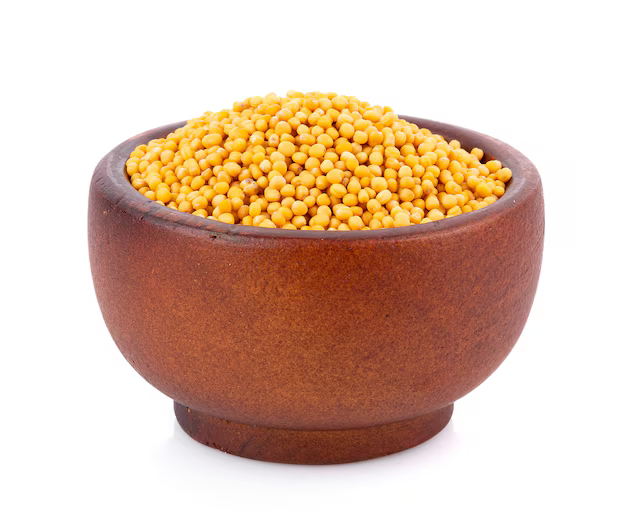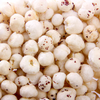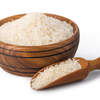Toor Dal: Nutrition, Benefits, Uses, and More

Toor dal, also known as pigeon pea or arhar dal, is a staple ingredient in Indian cuisine and many other cultures worldwide. It is a rich source of protein, fiber, and essential nutrients, making it an excellent addition to a balanced diet. This blog explores the nutrition profile, health benefits, culinary uses, and storage tips for toor dal, providing you with everything you need to know about this versatile legume.
What is Toor Dal?
Toor dal (Cajanus cajan) is a yellow lentil that belongs to the legume family. It is widely cultivated in India, Africa, and Latin America, where it plays a significant role in daily meals. The dal is usually split and skinned, resulting in a vibrant yellow lentil that cooks quickly and has a mild, nutty flavor. It is commonly used in dal dishes, soups, and stews, providing a hearty and nutritious meal option.
Nutritional Value of Toor Dal
Toor dal is packed with essential nutrients, including:
-
Protein: Supports muscle building and repair.
-
Dietary Fiber: Aids digestion and promotes gut health.
-
Iron: Helps prevent anemia and boosts energy levels.
-
Magnesium: Supports heart health and muscle function.
-
Potassium: Helps regulate blood pressure.
-
Folate: Essential for fetal development and cell growth.
A 100-gram serving of cooked toor dal provides approximately:
-
Calories: 150-180 kcal
-
Protein: 7-10 grams
-
Carbohydrates: 25-30 grams
-
Fiber: 3-5 grams
-
Fat: 1-2 grams
These nutrients make toor dal a powerhouse of health benefits.
Health Benefits of Toor Dal
1. Rich Source of Protein
Toor dal is an excellent plant-based protein source, making it ideal for vegetarians and vegans. It helps in muscle repair, growth, and overall bodily functions.
2. Aids Digestion
The high fiber content in toor dal promotes smooth digestion, prevents constipation, and supports a healthy gut microbiome.
3. Manages Diabetes
Toor dal has a low glycemic index, which helps regulate blood sugar levels and is beneficial for people with diabetes.
4. Supports Heart Health
Potassium and magnesium in toor dal help maintain blood pressure, reduce cholesterol levels, and support overall cardiovascular health.
5. Boosts Immunity
The presence of essential vitamins and minerals, including folate, iron, and antioxidants, strengthens the immune system and promotes overall health.
6. Aids in Weight Management
Since toor dal is high in protein and fiber, it keeps you full for longer, reducing cravings and aiding in weight management.
7. Good for Bone Health
Magnesium and phosphorus in toor dal contribute to strong and healthy bones.
8. Supports Pregnancy Health
Folate in toor dal is crucial for fetal development, making it an excellent food choice for pregnant women.
Culinary Uses of Toor Dal
Toor dal is highly versatile and can be used in various ways in cooking. Some of the most popular culinary applications include:
1. Traditional Indian Dal
Toor dal is a key ingredient in many Indian dishes like:
-
Dal Tadka: A spiced lentil dish tempered with ghee, garlic, and cumin.
-
Dal Fry: Cooked dal sautéed with onions, tomatoes, and spices.
-
Sambar: A South Indian dish made with toor dal, tamarind, and vegetables.
2. Soups and Stews
Toor dal can be used as a thickener in soups and stews, adding nutrition and texture.
3. Curries and Gravies
Ground toor dal can be used in curries and gravies to enhance the consistency and taste.
4. Snacks and Side Dishes
Toor dal flour is used to make various snacks, including fritters and crispy lentil chips.
5. Rice Dishes
Toor dal can be combined with rice to prepare dishes like khichdi, a comforting one-pot meal.
How to Cook Toor Dal
Cooking toor dal is simple and requires minimal preparation:
Ingredients:
-
1 cup toor dal
-
3 cups water
-
½ teaspoon turmeric powder
-
Salt to taste
Method:
-
Rinse the Dal: Wash toor dal thoroughly under running water.
-
Soak (Optional): Soaking for 30 minutes can reduce cooking time.
-
Pressure Cooking: Add dal, water, and turmeric to a pressure cooker. Cook for 3-4 whistles or until soft.
-
Stovetop Cooking: Simmer dal in a pot for 30-40 minutes until tender.
-
Tempering: Enhance the flavor by tempering with mustard seeds, garlic, and ghee.
-
Serve Hot: Enjoy with rice, roti, or as a soup.
Storage Tips for Toor Dal
Toor dal has a long shelf life if stored properly:
-
Dry Storage: Store in an airtight container in a cool, dry place.
-
Avoid Moisture: Keep dal away from moisture to prevent spoilage.
-
Refrigeration: Cooked dal should be stored in an airtight container in the refrigerator and consumed within 2-3 days.
Possible Side Effects and Precautions
While toor dal is beneficial, excessive consumption may lead to:
-
Digestive Issues: Overeating may cause bloating or gas due to its high fiber content.
-
Allergic Reactions: Some individuals may be allergic to legumes, so it’s best to consume with caution.
-
Oxalate Content: Toor dal contains oxalates, which may contribute to kidney stone formation in susceptible individuals.
Conclusion
Toor dal is a nutrient-dense legume, rich in protein, fiber, and essential vitamins, making it a must-have for a balanced diet. Whether used in traditional Indian dals, hearty soups, or innovative snacks, it adds both flavor and nourishment to every meal.
Why Choose Toor Dal from Buniyaa?
✅ Premium Quality – Fresh, unpolished toor dal for authentic taste and maximum nutrition.
✅ Rich in Nutrients – High in protein, fiber, and essential minerals for overall well-being.
✅ Versatile Ingredient – Perfect for dals, soups, stews, and fusion recipes.
✅ Trusted Source – Buniyaa: Buy Indian Grocery Online in USA guarantees top-quality products at competitive prices.
Incorporate toor dal into your meals for a delicious, wholesome, and nutritious experience!




